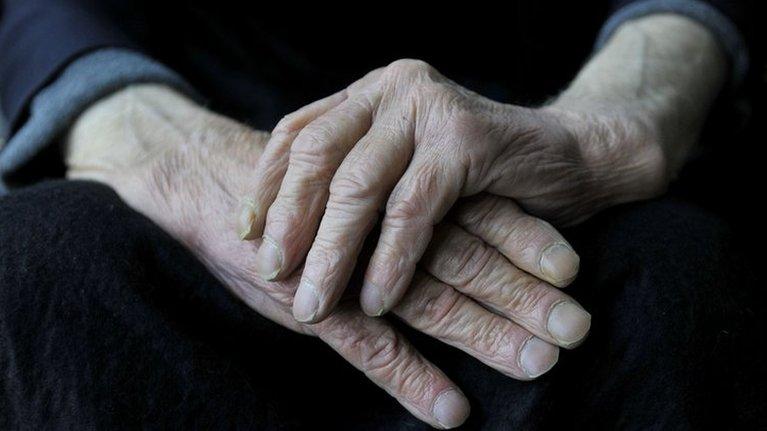Cardiff University gets £13m to be UK dementia centre
- Published
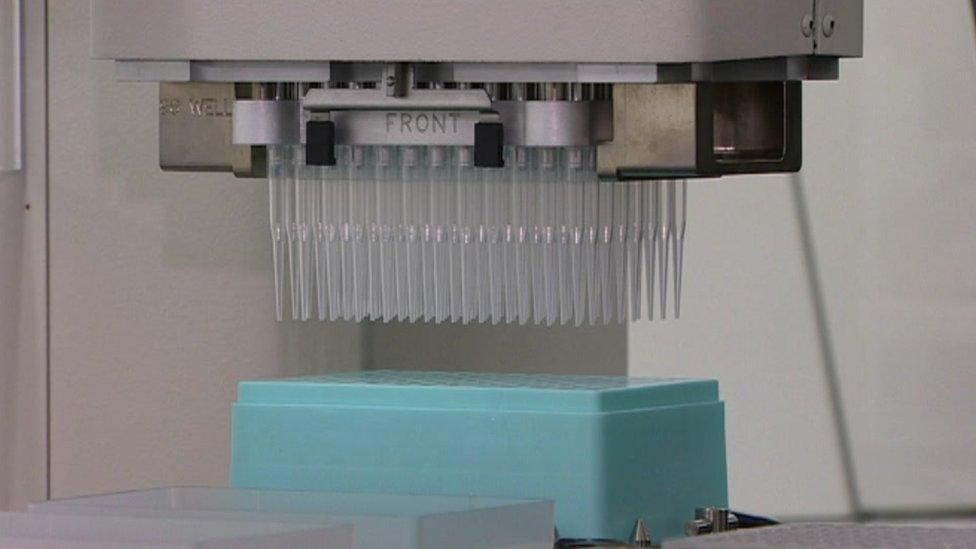
Cardiff University will be home to one of six UK centres aimed at finding new ways to diagnose and treat dementia.
£13m will go to the university, with the potential for another £17m in the next five years.
Up to 60 scientific researchers will be employed in Cardiff by 2022.
Prof Julie Williams, the centre's lead, said dementia could follow in the footsteps of cancer research and "reap the benefits" of therapies brought about by significant investment.
This UK Dementia Research Institute (DRI) Centre is set to be the biggest investment Wales has ever received for scientific study into the disease.
It is part of a £250m initiative, funded by the Medical Research Council, Alzheimer's Society and Alzheimer's Research UK.
Prof Bart De Strooper, director of the UK DRI, said centres were chosen on the basis of "innovative, excellent science".
£13m Cardiff University centre 'breakthrough' for dementia
Prof Williams said: "We've identified 30 genes in the last seven years that increase your risk of developing Alzheimer's disease.
"What's exciting about this centre is that we can now take that information forward, find out the disease mechanisms and produce treatments and preventative therapies for the future."
The university's Hadyn Ellis building will house the centre and the research aims to identify and treat the disease at an earlier stage.
Prof Valentina Escott-Price, a data analyst at Cardiff University, said: "I think for those people with dementia, we can give hope.
"I think our research will help to design drugs. To cure, or to fix the problem, there's a long way to go, but just to modify, to slow down the progression, that we could help with."

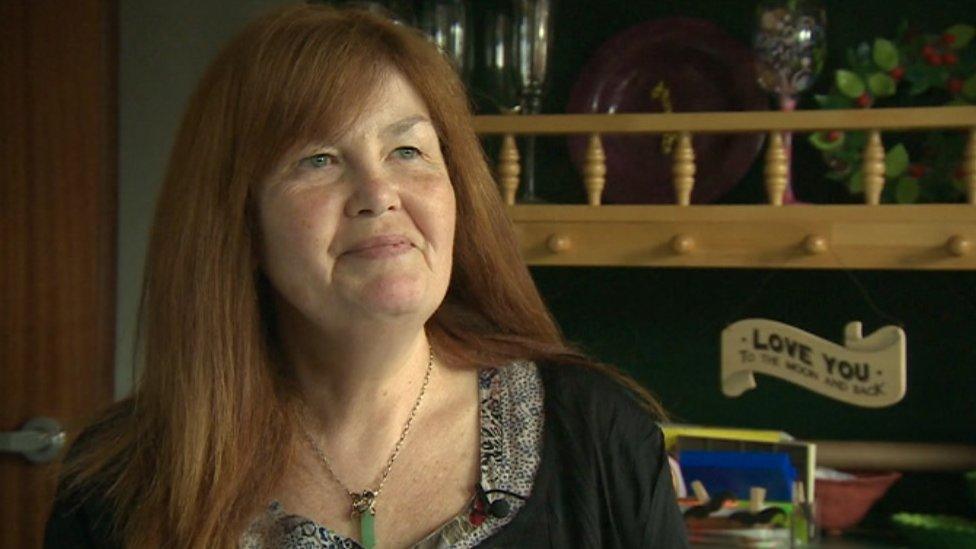
Living with dementia
Karen Kitch, 54, from Llanharry, Rhondda Cynon Taff, was diagnosed with early onset dementia in 2014.
"There's nothing he [the doctor] could tell me. He couldn't tell me how long before I was into the final part of my journey, how it was going to be through the process because he told me it was an individual disease.
"I had to stop work. I was on quite a good wage, so that disappeared overnight.
"Financially we nearly lost the house because we couldn't keep up with all of the payments because all of the money had gone and it took about six months for the benefits to be sorted out.
"I've done a degree in literature, I don't read any more because I start reading and I read so far and I put it down and I come back the next day and I've forgotten what I've read.
"Research is fantastic, it's really needed. I don't think it will be for my time but it will be for my children, or for my grandchildren... and if by that time they can find a cure, that would make me happy."
- Published10 February 2017
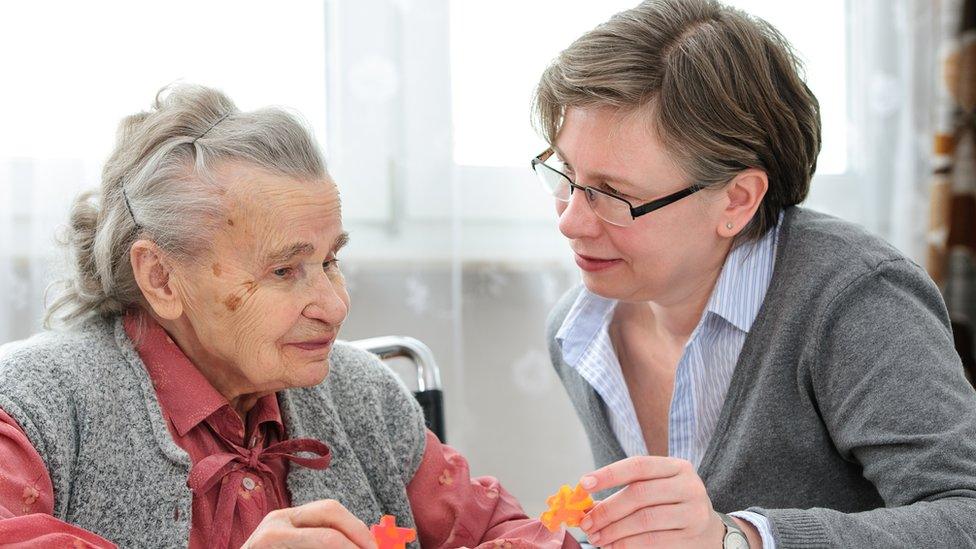
- Published9 January 2017
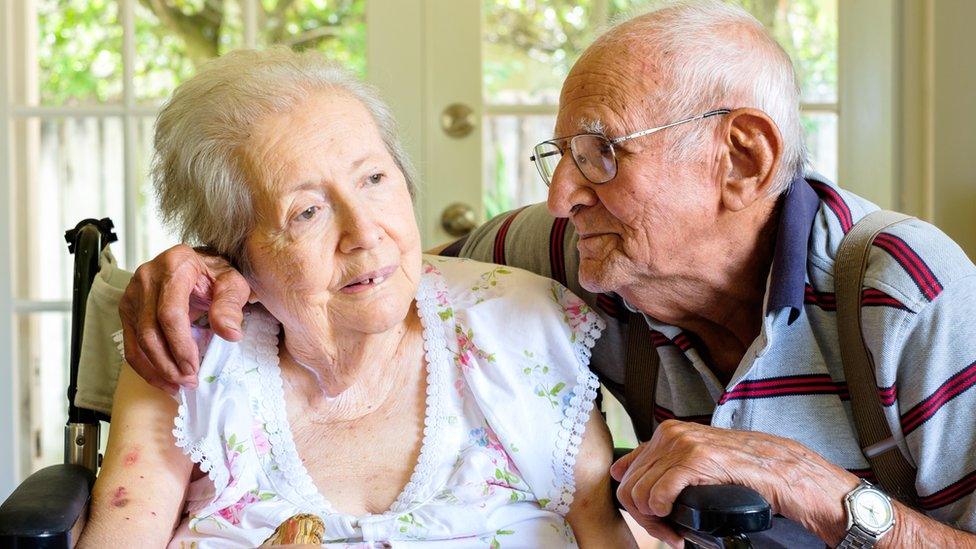
- Published20 May 2016
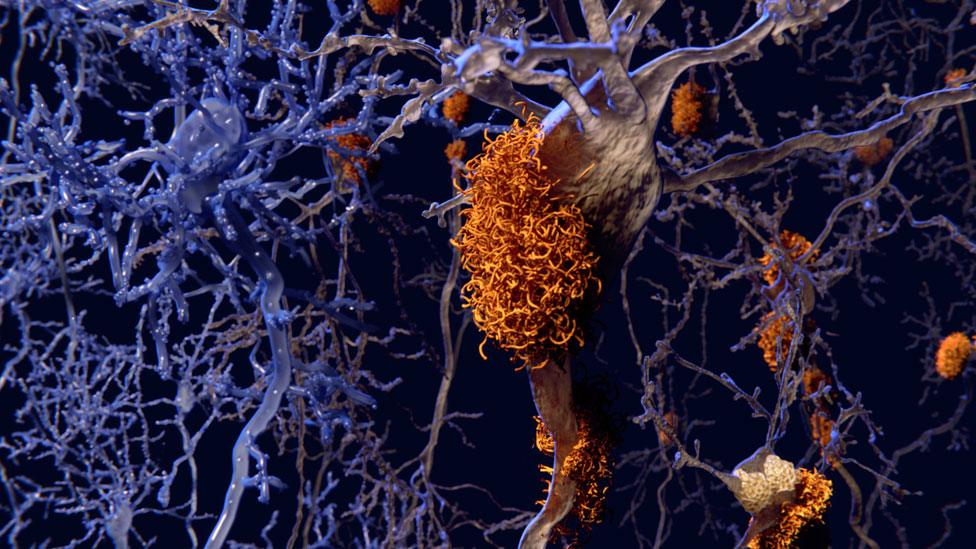
- Published19 June 2014
